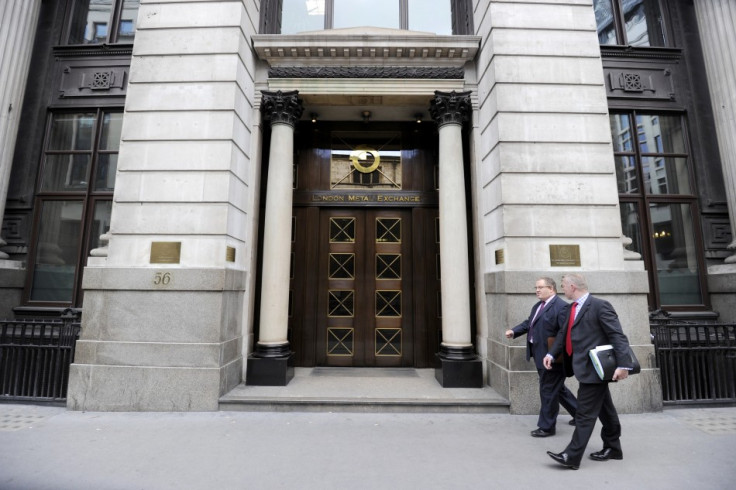Goldman Sachs Denies Creating Metal Shortage and Pledges Fast Aluminium Deliveries Amid Hoarding Probe

Goldman Sachs has denied causing a shortage of metal in the markets and has pledged to help end-users avoid year-long waits and high premiums by swapping aluminium held in its Metro International warehouses.
According to a broadcast interview with a Goldman's chief, the bank has implemented a set of measures in order to to diffuse intensifying pressure over its commodity business, after the US' Commodity Futures Trading Commission (CFTC) revealed it is mulling over a potential investigation.
"We feel horrible for consumers if they can't get metal. We don't believe that to be the fact," said Goldman's chief operating officer Gary Cohn on CNBC.
"Goldman Sachs is contacting end-users to offer to swap any aluminium currently in the queue, for immediately available aluminium, so that they have access to the metal they need to make or package their products."
However, Goldman added that it has yet to find one customer to take it up on its offer despite scrutiny from market participants that allege long wait times for aluminium orders have driven up prices and led to lawmakers and major customers complaining.
Under the bank's proposals, Goldman will slash waiting times at all London Metal Exchange (LME) warehouses, without the need to pay a steep cash premium. LME alumnium buyers are required to pay a premium on the wholesale price of the metal to secure orders.
However, this has risen by more than 150% since 2010 as stockpiles in warehouses rocketed to a record 5.5 million tonnes.
Impact of 'Aluminium Hoarding'
Goldman and the world's largest commodities trader, Glencore Xstrata, have been ordered by the CFTC to preserve of all internal documents and emails relating to the storage of aluminium ahead of a potential investigation.
Customers and US lawmakers had accused the bank and other warehouse owners of artificially inflating waiting times and queues to cause a rise in metal prices.
High aluminium prices have hit a number of industries, such as the drinks business, where consumers ultimately pay more for canned drinks whenever the cost of the metal creeps up.
US-based brewer MillerCoors said that the inflated price of the metal was costing consumers $3bn (£1.9bn, €2.26bn) a year.
Banks in Commodity Business
Last week, US senators questioned why banks should be involved in owning warehouses and chartering oil tankers.
According to officials, Goldman Sachs bought Metro International for some $550m in early 2010 as a private equity exemption, which allows the firm to keep it as an investment for up to 10 years. The bank considered a sale of the unit earlier this year but has vowed to keep the business for now.
"We will end up selling Metro at an appropriate time," Cohn said. "We are staying in the commodity hedging business."
Metro's flagship warehousing facility in Detroit stores more than 1.4 million metric tonnes of aluminum, representing a quarter of the LME's stockpile. Over 60% of the stock is waiting to be delivered.
Meanwhile, rival JPMorgan Chase said it is planning to reduce its physical commodities business after mounting pressure from the regulators.
Goldman's rival said the group is mulling over whether to sell a selection of commodity business units, including metals warehousing firm Henry Bath & Sons, which is the fourth-largest storage business in the LME system.
Traders like Glencore and Trafigura, which have also bought warehouse operators, are also expected to be pressurised as regulators including the US Department of Justice and the CFTC begin initial investigations into the matter.
In London, the Financial Conduct Authority told IBTimes UK that it is eyeing the situation closely but it has not launched a formal investigation.
© Copyright IBTimes 2025. All rights reserved.






















